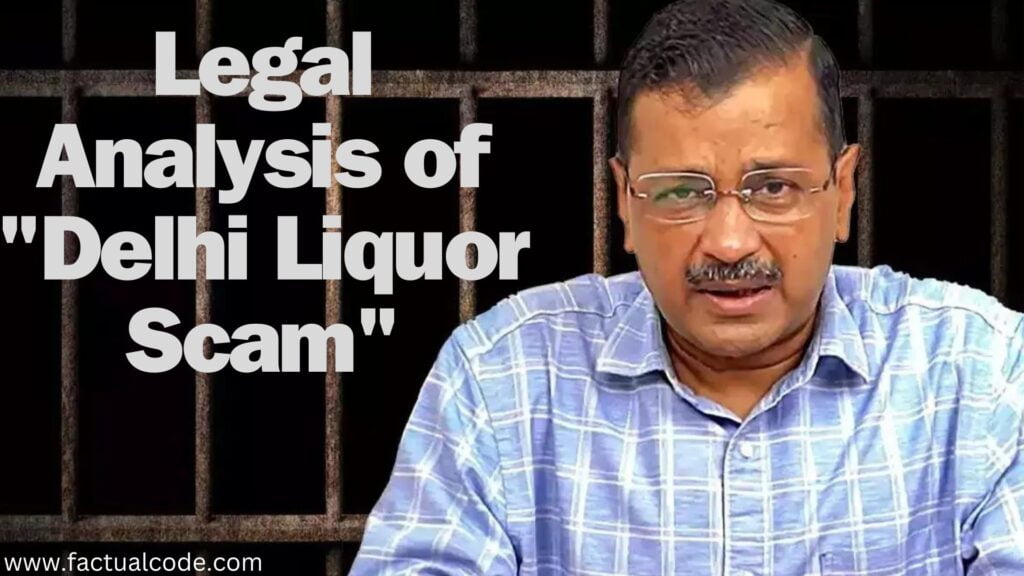Introduction
The Delhi Liquor Scam pertains to allegations of corruption and procedural irregularities during the formulation and implementation of the 2021-22 Delhi Excise Policy. The policy aimed to modernize liquor distribution and retail in Delhi but led to accusations of favoritism, financial impropriety, and violations of regulatory procedures. These developments sparked widespread legal and political repercussions.
Background of the Excise Policy
The Delhi Excise Policy (2021-22) sought to privatize liquor sales to achieve:
- Enhanced revenue generation for the state.
- Better customer experiences through private retailing.
- Reduction of the liquor mafia’s influence.
Key changes included dividing the city into 32 zones, auctioning retail licenses to private entities, and allowing uniform profit margins for wholesalers. However, the policy was scrapped in August 2022 following allegations of corruption and financial losses to the exchequer.
Legal Framework Involved
The case is governed by several critical statutes:
- Indian Penal Code (IPC):
- Section 120B (now Section 61(2) of BNS): Criminal conspiracy.
- Section 477A (now Section 344 of BNS): Falsification of accounts.
- Prevention of Corruption Act, 1988:
- Section 7: Public servants accepting gratification.
- Prevention of Money Laundering Act (PMLA), 2002:
- Includes provisions presuming guilt until proven innocent.
Key Allegations and Evidence
1. Financial Impropriety:
- Accusations of ₹100 crore in kickbacks to public officials and political campaigns.
- Manipulated policy provisions benefitting specific liquor manufacturers and wholesalers.
2. Procedural Violations:
- Bypassing necessary approvals, including those from the Lieutenant Governor.
- Ignoring expert committee recommendations to favor select stakeholders.
3. Key Evidence:
- Testimonies from witnesses such as Dinesh Arora and Magunta Srinivasulu Reddy.
- Digital records, including WhatsApp messages and call logs, corroborating bribe trails.
- Financial records detailing hawala transactions linked to political campaigns.
Judicial Developments
Arrests and Bail:
- Arvind Kejriwal: Arrested by the ED in March 2024; later granted bail by the Supreme Court citing prolonged detention and delays in trial.
- Manish Sisodia: Accused of spearheading the irregularities; remains under investigation.
- Satyendar Jain: Granted bail after over two years in custody due to expected trial delays.
Split Verdict on Arrest Validity:
- Justice Surya Kant upheld the arrest’s compliance with CrPC provisions.
- Justice Ujjal Bhuyan questioned the timing, hinting at potential political motives.
Sanction to Prosecute:
- The Delhi Lieutenant Governor approved prosecution against Kejriwal, a decision contested by AAP on procedural grounds.
Political and Governance Implications
Governance Challenges:
- Exposes flaws in public policy formulation and implementation.
- Highlights the need for transparency and accountability in governance.
Political Fallout:
- Opposition BJP has leveraged the allegations for political gains, targeting AAP’s integrity.
- Accusations of political vendetta continue to dominate narratives.
Conclusion
The Delhi Liquor Scam remains a complex case, intertwining governance, law, and politics. While the judiciary emphasizes procedural fairness and credible evidence, the prolonged investigations underscore systemic challenges in addressing high-profile corruption cases. As trials continue, the case serves as a reminder of the importance of transparency and adherence to legal frameworks in public policy.
References-NDTV ABP Thehindu.com thehindusthantimes.com indianexpress livemint.com timesofindia businesstoday.com thesouthfirst.com NDTV freepressjournal livemint.com indiatvnews statetimes.in businesstoday hindusthantimes thehindubusinessline timesofindia indianexpress newindianexpress hindusthantimes businessline businessstandard.com www.hindustantimes.com economictimes.indiatimes.com www.news18.com timesofindia.indiatimes.com www.ndtv.com en.wikipedia.org www.ndtv.com www.livelaw.in

